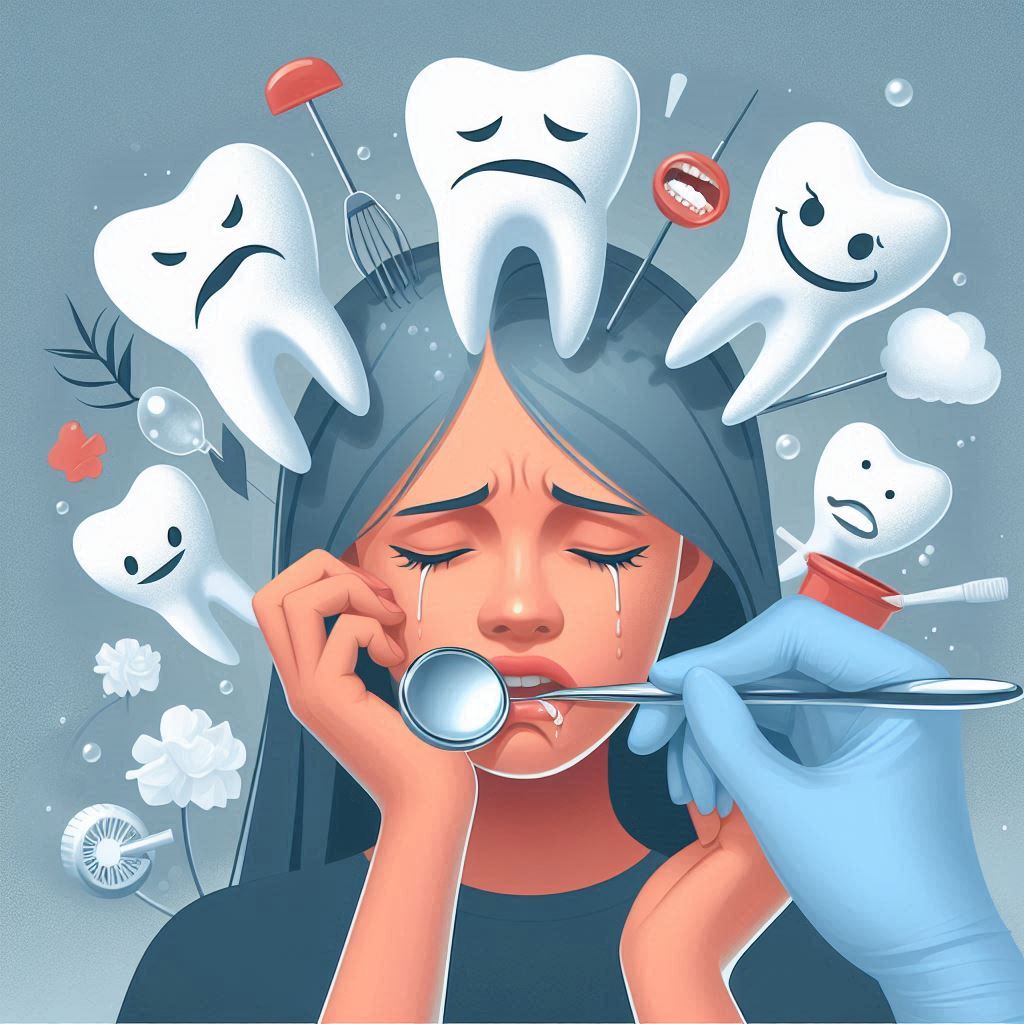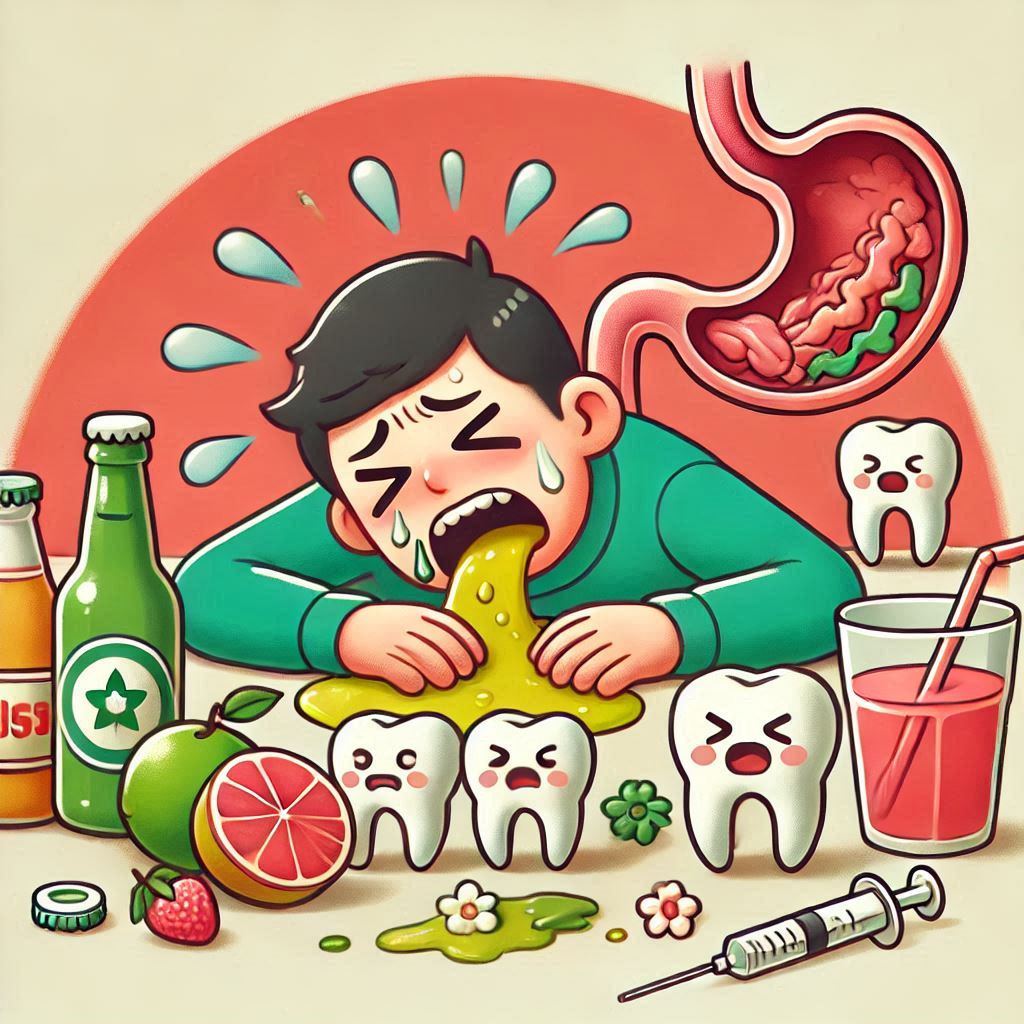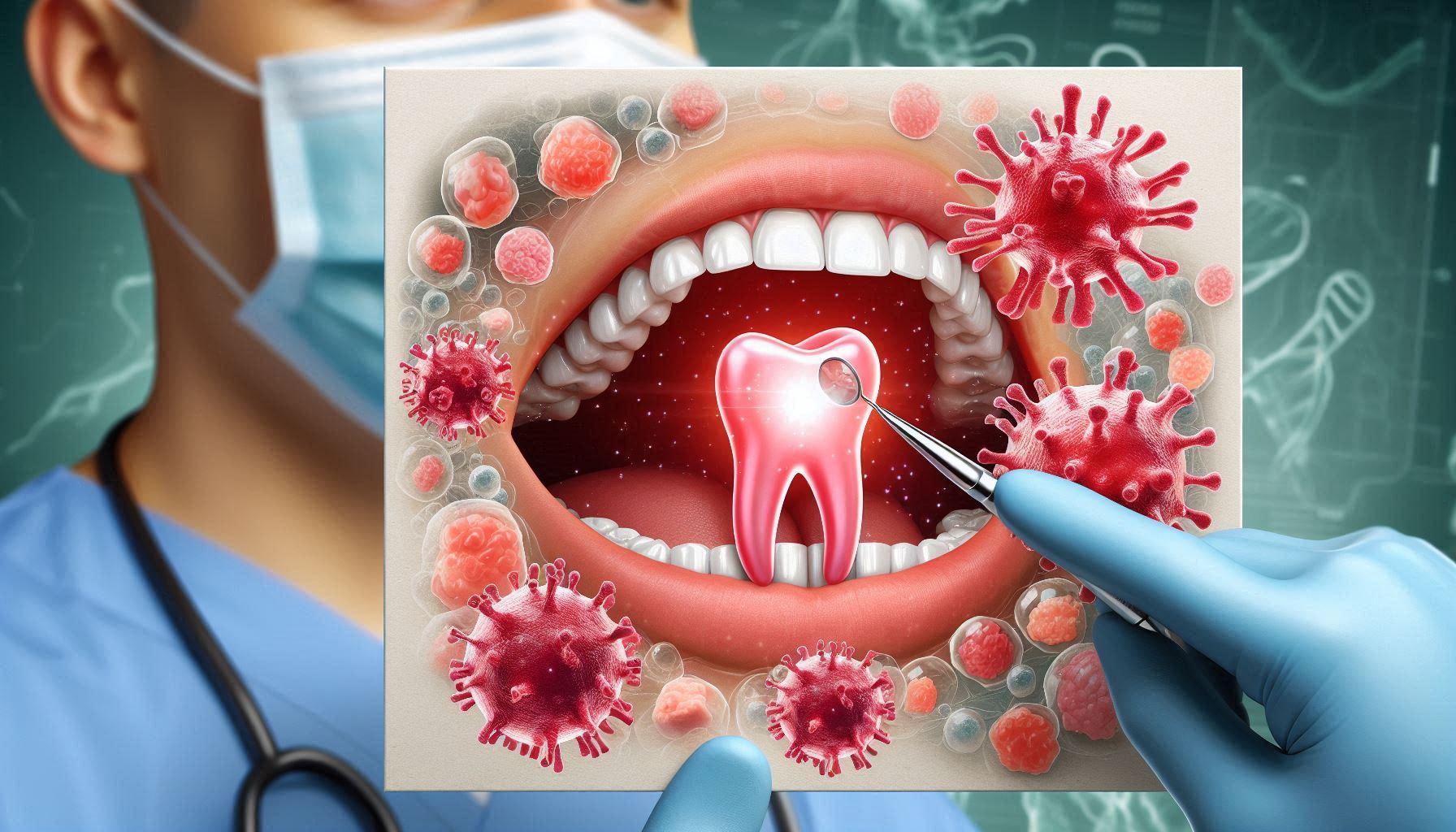Introduction
Most people understand that oral health is important for physical reasons: to avoid toothaches, cavities, gum disease, or tooth loss. But what’s often overlooked is the profound impact that oral health has on our psychological, emotional, and social lives. Poor oral health can subtly undermine one’s confidence, relationships, and even professional success—ultimately affecting how others perceive you and how you present yourself to the world. The relationship between oral health and personality isn’t just about aesthetics. It extends to the way you feel about yourself, interact with others, and navigate social and professional environments. When your teeth or smile aren’t in good shape, you may feel embarrassed, withdrawn, or self-conscious, affecting your interactions in ways you might not fully realize. The psychological toll can lead to stress, anxiety, and a diminished sense of self-worth. Over time, these emotional struggles can create barriers to authentic self-expression, preventing you from showcasing the best version of your personality.
In this guide, we’ll explore how poor oral health might be holding you back from your best personality. We’ll look at the connection between oral health and self-confidence, how it affects social interactions and relationships, its impact on professional life, and even its influence on your mental and emotional well-being. Finally, we’ll discuss ways to take control of your oral health, not just for your physical health but for your emotional and social success.
The Link Between Oral Health and Self-Confidence
The Psychological Impact of a Smile
The first thing most people notice about you is your smile. It’s one of the most immediate signals you give others about your mood, personality, and openness. A warm, confident smile conveys friendliness, approachability, and positivity. It invites conversation and makes people feel comfortable around you. Conversely, if you are self-conscious about your teeth—whether due to discoloration, misalignment, or decay—it can cause you to hold back that smile, which can impact how others perceive you.
When someone feels insecure about their smile, they may avoid smiling altogether, or they may force a smile that doesn’t feel natural. Over time, this leads to an ongoing cycle of self-doubt and missed opportunities to express warmth or positivity. A lack of genuine smiles can signal disinterest or discomfort, even if that’s not the case. As a result, poor oral health can prevent you from presenting the version of yourself you want the world to see.
Social Withdrawal and Isolation
If you feel that your smile isn’t “perfect” or that your breath isn’t fresh, you may start to shy away from social interactions. Avoiding eye contact or keeping your lips sealed during conversations becomes a protective mechanism. While this might feel like a way to mask insecurities, it also limits your ability to connect with others on a deeper level. Social withdrawal can lead to isolation, which further affects your emotional well-being. Over time, a lack of social interaction can erode your self-esteem, leaving you feeling even more disconnected from the world around you.
The role of a smile in social interactions cannot be overstated. Research has shown that people are more likely to engage with and trust those who smile more often. When you hide your smile or avoid socializing due to fears about your oral health, you inadvertently deny yourself the chance to form meaningful relationships.
Oral Health and Social Interactions
The Role of Breath in Social Situations
Bad breath, also known as halitosis, is one of the most common consequences of poor oral hygiene. It’s caused by bacteria in the mouth that feed on food particles and produce sulfur compounds, resulting in an unpleasant odor. Not only does bad breath make you feel self-conscious, but it also impacts your ability to engage in close conversations. If you’re worried about the possibility of bad breath, you might find yourself keeping a physical distance from others or speaking less in social settings, which further reinforces feelings of inadequacy.
The effects of bad breath aren’t just limited to personal interactions. In professional environments, individuals may feel embarrassed to speak or present in meetings if they’re concerned about their breath. This creates an additional layer of anxiety and self-doubt, which can affect the way you communicate and connect with others. Over time, these discomforts may limit your participation in social and professional events, diminishing your overall engagement with the world.
Smiling and the Power of Non-Verbal Communication
Smiling is not only an important social cue but also an essential tool for non-verbal communication. A genuine smile can diffuse tension, create rapport, and build trust. Unfortunately, many people with dental issues feel hesitant to smile openly, worried that others will judge their teeth. This reluctance to smile can create barriers to building relationships and connecting with people, both personally and professionally.
The inability or unwillingness to smile may give others the impression that you are unfriendly, serious, or standoffish, even though your personality may be far more engaging. Research has shown that people are drawn to individuals who smile because it signals warmth and openness. When you withhold your smile, you might inadvertently send signals that make others perceive you as less approachable, regardless of your true intentions.
Oral Health and Professional Success
The Impact of First Impressions in the Workplace
First impressions are critical in any professional setting, whether during a job interview, a networking event, or a business meeting. One of the first things people notice is your appearance, including your smile. A bright, confident smile signals professionalism, friendliness, and approachability, all of which are highly valued in the workplace. On the other hand, if you feel self-conscious about your teeth or have visible oral health issues, you may hesitate to smile, which could give the impression that you lack confidence or that you’re uncomfortable in the environment.
Moreover, many professionals interact with clients, colleagues, and customers on a daily basis. If you’re holding back from engaging in conversations because of concerns about your oral health, you may miss out on opportunities to build relationships, network, and connect with key individuals in your field. A lack of social interaction or reluctance to engage in public speaking can significantly limit your professional success.
Oral Health and Communication Skills
Clear communication is at the heart of professional success. Whether you’re giving a presentation, participating in a team discussion, or negotiating a deal, your ability to articulate your ideas effectively is paramount. Dental issues—such as missing teeth, discomfort, or difficulty speaking clearly due to dental problems—can hinder your ability to communicate with confidence. For instance, if you are self-conscious about your teeth, you might avoid speaking up in meetings, giving presentations, or engaging with colleagues.
In extreme cases, unresolved dental problems can lead to speech difficulties, which can affect how others perceive you in a professional context. If you’re unable to speak clearly or confidently due to oral health problems, it may impact your ability to persuade, inform, or influence others, all of which are crucial skills for career advancement. As a result, poor oral health can limit your professional opportunities, preventing you from achieving your full potential in the workplace.
The Connection Between Oral Health and Mental Well-Being
Chronic Pain and Emotional Distress
One of the most obvious ways in which poor oral health can affect mental well-being is through chronic pain. Toothaches, gum disease, and other dental issues can cause persistent discomfort that makes it difficult to focus, concentrate, or engage in daily activities. Chronic pain is a known risk factor for mental health problems such as anxiety and depression. The constant physical discomfort of oral health problems can increase stress levels, leading to emotional distress that affects your overall mood and outlook on life.
The emotional toll of chronic dental pain can be significant. It may cause individuals to become irritable, frustrated, or withdrawn. Additionally, the long-term financial and emotional investment required to address serious dental issues can lead to feelings of helplessness and overwhelm, further exacerbating the negative impact on mental health.
The Psychological Toll of Stress from Oral Health Issues
Beyond the physical pain, the stress associated with worrying about oral health problems—especially if they are left untreated—can have a profound impact on mental well-being. People who are embarrassed about their teeth or worried about dental procedures may experience anxiety and stress when thinking about their oral health. This mental burden can add to an already stressful daily life and make it harder to stay focused or engaged in positive activities.
The mental energy spent worrying about oral health issues can detract from emotional resilience and the ability to engage fully in life. Stress and anxiety from worrying about bad breath, discolored teeth, or upcoming dental appointments can weigh heavily on an individual’s ability to be emotionally available and confident, both in personal and professional contexts.
Oral Health and Relationships
Romantic Relationships and Oral Health
Oral health doesn’t just impact social and professional interactions; it also plays a crucial role in our personal relationships. Whether it’s with a romantic partner, family members, or close friends, our interactions are often influenced by how we feel about ourselves. In romantic relationships, physical attraction and comfort are important factors, and a healthy, confident smile can contribute significantly to these feelings. However, issues like bad breath, missing teeth, or an unwillingness to smile due to poor oral health can introduce unnecessary tension between partners. In a romantic relationship, one partner may notice if the other is constantly avoiding close physical contact or feeling insecure about their teeth. This could lead to misunderstandings, reduced intimacy, or even feelings of neglect, as poor oral health can become a barrier to connecting emotionally and physically.
For example, if one partner feels self-conscious about their breath, they may avoid kissing or getting too close to their significant other. In the long run, this can erode the intimacy and emotional connection in the relationship. Similarly, if one partner has visibly damaged or decayed teeth and is hesitant to smile or speak freely, it could make them appear distant or disengaged, even though they may be deeply invested in the relationship.
Building Trust and Respect
In all relationships, trust is foundational. When someone neglects their oral health, it may subconsciously signal a lack of self-care or self-respect, which can affect the way others perceive their overall well-being. If a person isn’t taking care of something as basic as their oral health, it may lead others to question their commitment to their overall health or their relationships.
Moreover, in the case of romantic relationships, neglecting oral health can be perceived as a lack of care for the partner. People generally appreciate when their partners take care of themselves and make an effort to maintain good hygiene, as it shows they respect their bodies and, by extension, the relationship itself. Partners who prioritize their oral health are also more likely to model healthy habits, creating a more positive, supportive environment for the relationship.
Even in platonic relationships, maintaining good oral hygiene can affect how friends and family perceive you. If you are confident in your smile and take care of your teeth, you radiate self-respect and health, which encourages others to interact with you more positively. Over time, this trust and respect contribute to a stronger, more authentic personality.
The Role of Oral Hygiene in Mental Clarity and Focus
Oral Health and Cognitive Function
The connection between oral health and mental clarity is a nuanced one, but it’s an important aspect to consider when discussing how poor oral health can affect your overall personality. Chronic oral health problems, such as gum disease and untreated infections, can lead to inflammation throughout the body. This inflammation has been linked to a variety of systemic health issues, including a potential decline in cognitive function.
When the body is fighting off infection—whether in the gums or elsewhere—it diverts resources away from other processes, like clear thinking or memory. As inflammation spreads through the body, it can affect brain function, leading to difficulty concentrating, mental fatigue, and even memory problems. For example, studies have shown that individuals with chronic gum disease are more likely to experience problems with focus and mental processing. In severe cases, there may even be a link between periodontal disease and cognitive decline in older adults.
Mental Fatigue and Stress from Oral Health Issues
In addition to cognitive issues, the mental and emotional burden of poor oral health can lead to increased stress and fatigue. Dealing with a chronic dental problem—such as recurring pain from a decaying tooth or the anxiety of anticipating a dental procedure—can drain a person’s mental energy. This constant strain can manifest as irritability, lack of motivation, and difficulty engaging in activities that typically bring joy or fulfillment.
When people are constantly preoccupied with thoughts about their oral health, it can also limit their ability to concentrate on tasks, whether it’s work, social obligations, or even hobbies. This mental distraction can prevent you from fully enjoying life and participating in meaningful experiences, which ultimately holds you back from expressing your personality to its fullest potential.
Preventing Oral Health Issues for a Better Personality
Adopting Daily Oral Care Habits
The good news is that most oral health problems are preventable. By adopting daily oral care habits, you can significantly improve your oral hygiene and, by extension, your confidence, mental well-being, and ability to engage with the world around you. Here are some essential steps for maintaining a healthy mouth:
- Brushing Twice a Day: Brushing your teeth in the morning and before bed is crucial for removing food particles, bacteria, and plaque that build up throughout the day. Using fluoride toothpaste helps prevent tooth decay and cavities, keeping your smile looking its best.
- Flossing Daily: Flossing helps remove food particles and plaque between your teeth that brushing alone can’t reach. It also prevents gum disease by keeping your gums healthy and free of infection.
- Regular Dental Check-Ups: Seeing a dentist at least once a year—or more frequently if recommended—ensures that any potential issues are caught early. Professional cleanings remove tartar buildup and help keep your gums and teeth in top shape. Regular check-ups also provide an opportunity for your dentist to address any concerns before they escalate into serious problems.
Diet and Its Impact on Oral Health
Diet plays a significant role in maintaining oral health. Consuming a balanced diet rich in essential vitamins and minerals—like calcium, vitamin D, and vitamin C—helps keep your teeth and gums strong. Avoiding excessive sugar and acidic foods can reduce the risk of cavities, tooth decay, and gum disease. Additionally, staying hydrated by drinking plenty of water helps wash away food particles and bacteria in the mouth, reducing the risk of bad breath and other oral health issues. By making healthier food choices and drinking more water, you’re not only promoting your oral health but also improving your overall sense of well-being.
Psychological Benefits of a Healthy Smile
Taking care of your oral health has significant psychological benefits. When you invest time and effort into brushing, flossing, and maintaining regular dental visits, you’re also investing in your self-confidence. A healthy smile makes you feel good about yourself, and the boost in confidence that comes with it will naturally spill over into other areas of your life. Feeling good about your smile means you’ll be more likely to smile freely in social situations, interact with others confidently, and embrace opportunities for personal growth. The psychological benefits of maintaining oral health are immense, and they translate into greater happiness, a stronger sense of self-worth, and a more vibrant personality.
Conclusion
Oral health is undeniably important, but its impact extends far beyond simply avoiding toothaches or cavities. The state of your teeth, gums, and overall oral hygiene can have a profound influence on your self-confidence, social interactions, professional success, and mental well-being. When oral health is neglected, it can create barriers to authentic self-expression, limiting your ability to fully embrace the best version of yourself.
Conversely, when you prioritize oral health, you unlock a world of opportunities. You’ll feel more confident in your appearance and communication skills, build stronger relationships, and perform better in your career. You’ll experience less stress and anxiety, and you’ll be better equipped to engage with the world in a positive, fulfilling way. Taking control of your oral health isn’t just about brushing your teeth; it’s about investing in yourself, your happiness, and your future. So, take the first step today—prioritize your smile, and watch as it enhances not only your physical health but also your confidence, your relationships, and ultimately, your personality.
SOURCES
Hughes, J. A. (2019). The impact of oral health on self-esteem and social interaction. Journal of Health Psychology, 24(3), 265-273.
Michaud, D. S. (2021). Oral health and its connection to systemic diseases. Medical Journal of Dentistry, 58(5), 477-483.
Michaud, D. S., & Yang, Z. (2020). Oral health and cognitive function: Implications for aging populations. Journal of Clinical Psychology, 42(1), 56-64.
Pine, C. M. (2018). The link between oral hygiene and psychological well-being: A review. Psychosomatic Dentistry Review, 15(2), 110-118.
Smith, L. R., & Lee, R. D. (2022). Dental health and its effect on professional success. Business Health Journal, 7(2), 130-138.
Taylor, A. S. (2020). Chronic oral disease and its mental health consequences. Journal of Psychological Research, 29(6), 842-850.
Varela, M. G., & Oliviero, C. S. (2019). The impact of bad breath on social interactions: A psychological perspective. International Journal of Social Health, 16(1), 45-52.
Williams, D. P., & Green, S. E. (2020). Oral health and its influence on romantic relationships. Journal of Relationship Psychology, 33(3), 270-277.
Zhang, J., & Song, X. (2017). Oral health behaviors and their impact on social relationships: A longitudinal study. Journal of Social Psychology, 49(4), 191-201.
HISTORY
Current Version
January 30, 2025
Written By:
SUMMIYAH MAHMOOD




